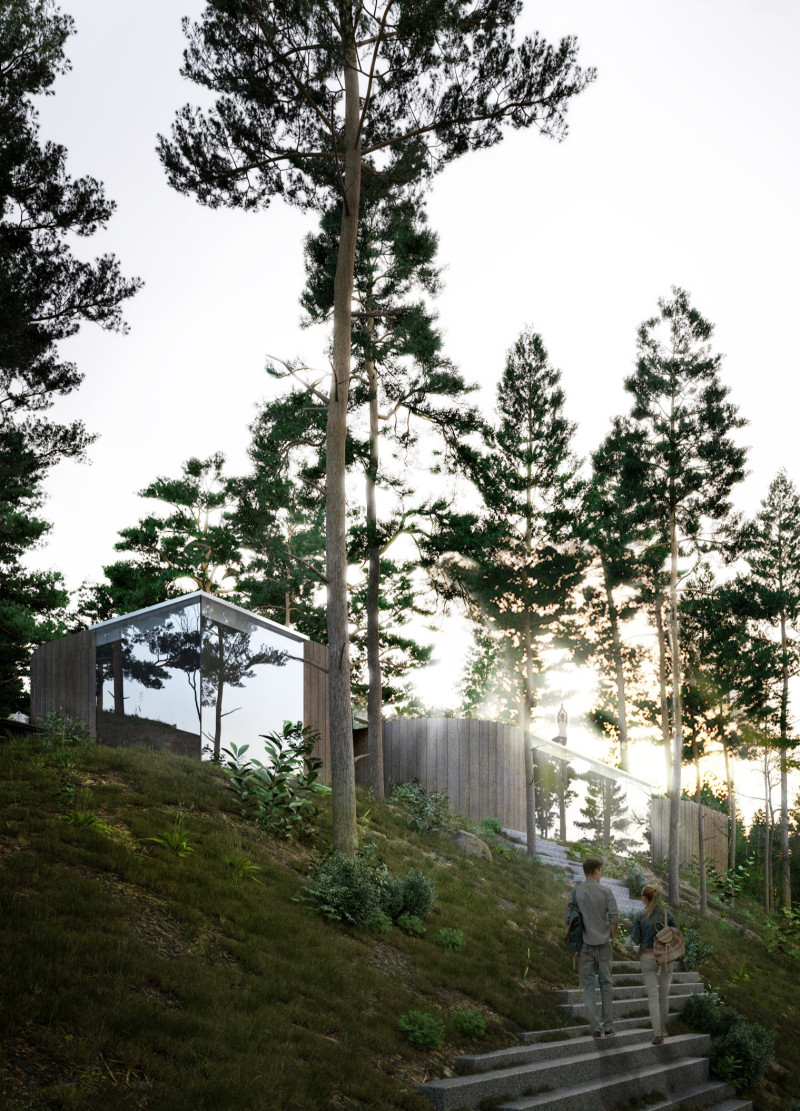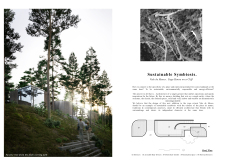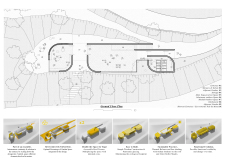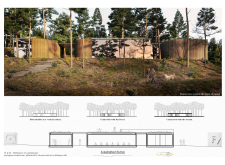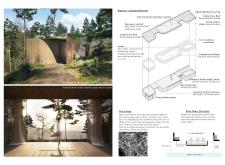5 key facts about this project
The Vale de Moses Yoga House is located on a cliff in Portugal, designed as a peaceful retreat for yoga practitioners. It emphasizes a strong connection with nature while promoting sustainable building practices. The overall design focuses on merging the architecture with its environment, creating a serene space where users can engage in wellness activities.
Architectural Concept
The design centers around the idea of bringing together contrasting elements to form a unified structure. The building connects indoor and outdoor areas, merging solid and void spaces to create a cohesive flow. This approach allows the architecture to blend into its natural setting, enhancing the overall experience for those who visit.
Spatial Organization
The layout of the Yoga House is carefully thought out to balance communal and private spaces. The roof terrace provides an opportunity for users to enjoy the scenic views surrounding the building. On the ground floor, essential facilities such as showers, toilets, and storage are included, alongside dedicated areas for yoga practice. Outdoor spaces encourage interaction with nature, facilitating a smooth transition between the interior and exterior.
Material Selection
Choosing materials is a critical aspect of the design. Mass timber is used for the structural elements, providing strength while adding warmth to the appearance of the building. The use of impregnated wood paneling enhances the visual quality and durability of the structure. By selecting these materials, the design aims to limit environmental impact and promote energy efficiency.
Ecological Strategies
Several ecological strategies are incorporated into the design to improve energy performance. The green roof, which includes sedum gardens, helps with insulation and cooling, aligning with sustainability goals. Outer roller shades regulate sunlight, contributing to energy efficiency. Interconnected Zen gardens promote moments of calm and reflection, reinforcing the connection between cultivated and natural spaces.
The Yoga House invites visitors to immerse themselves in the landscape. Panoramic windows frame stunning views, providing a direct link to the surrounding environment while emphasizing the tranquil atmosphere of the retreat.


